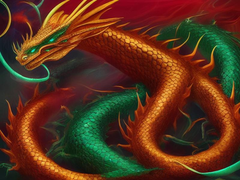.png)
In this article, we will explore the concept of Papacuan, an intriguing cultural and historical subject from Indonesia. Understanding Papacuan provides valuable insights into local traditions, rituals, and their significance in Indonesian heritage.
What is Papacuan?
Papacuan is a term deeply rooted in Indonesian culture, particularly in the region of Sulawesi. It refers to traditional ceremonies and rituals performed by local communities. These events are essential for maintaining the balance between the spiritual and physical worlds, often involving music, dance, and elaborate costumes. The ceremonies are not only a display of cultural richness but also a means to preserve historical practices passed down through generations.
The Historical Significance
Historically, Papacuan plays a crucial role in reinforcing social cohesion and cultural identity. It is a time when communities come together to celebrate their heritage, honor ancestors, and seek blessings for prosperity and well-being. The rituals performed during Papacuan are considered sacred and are meticulously carried out to ensure their effectiveness and authenticity.
Modern-Day Observances
In contemporary times, Papacuan continues to be a vibrant part of Indonesian life. Despite modernization, these traditions are upheld with pride, showcasing the resilience of cultural practices amidst a rapidly changing world. Various festivals and events across Sulawesi offer opportunities for both locals and tourists to experience the rich cultural tapestry of Papacuan firsthand.
In conclusion, Papacuan represents a significant cultural heritage of Indonesia, reflecting the deep-rooted traditions and communal values of the Sulawesi region. Preserving and promoting such practices is essential for maintaining the cultural diversity and historical richness of the nation.









